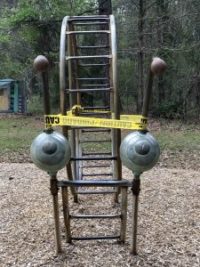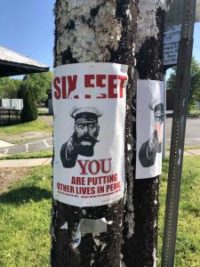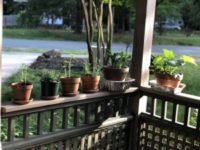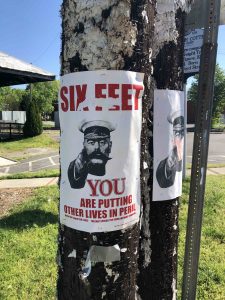In our pre-Covid world, I would be in South Korea right now. Although I blotted my calendar’s contents with white-out eleven weeks ago, I can still make out SEOUL in today’s box in phantom script.

I am growing strangely accustomed to co-existing with the would-have-been. The first time I did so was during the 2008 economic crisis. I was wholly nomadic then, with all my possessions either strapped to my back or stuffed inside someone’s attic. The stock market collapsed as I arrived in the northeast to launch a new book. Moments before stepping onto a train to Washington D.C., a frazzled woman called to say that the bookstore where I was traveling to give a reading the following night had just filed for bankruptcy. All events were canceled, effective immediately. By the end of that month, I had lost three-fourths of what would have been my annual income and moved back home with my parents.
The second time everything cancelled in perpetuity was in 2017, when I got diagnosed with ovarian cancer. A book tour that had taken six months to plan dissolved in a single afternoon, replaced with a slew of doctor’s appointments. Today, I would have spoken at the Texas Book Festival, I would think as a nurse hooked an IV to the port sewn inside my chest, and tomorrow, at my alma mater.
Both of those experiences rattled me to the core. Yet I felt strangely little emotion watching my calendar lose its contents this time around. The first time a calamity strikes, it is genuinely shocking. The second time, it is shattering, because you convinced yourself the previous instance was a fluke. By the third round, your mind processes the horror quickly. You try to draw upon the wisdom gained from the previous times and focus on the positive. At least I have a job this time. (For now, anyway.) At least I am not sick. (Yet.)

It has been obliterating to watch this pandemic unfold. The students graduating into economic devastation, the friends losing their jobs, the neighbors losing their health insurance, the local businesses losing their storefronts. The migrants imprisoned in detention centers. The families who don’t have enough to eat. The police violence in our Black communities. The essential workers risking their lives for us all.
I loved our pre-Covid world so much, I devoted my life to exploring it. Yet it was so rife with injustice, it needed to end. So did the ways I contributed to its destruction. Flying home from New Zealand last December, I looked out over the ocean and wondered whether the story I had reported was worthy of the carbon footprint I had made on its behalf. I have tried to make amends these last two months by securing emergency housing for a former student, organizing a neighborhood collection for our local delivery personnel and another for our local food bank, planting a vegetable garden on my porch, and writing a couple dozen checks for donations. I do not leave home without a mask, and haven’t bought anything from Amazon since the second week of quarantine, when I freaked about hypothetical power outages and got a short-wave radio. Each of these actions feels like a single step of a marathon with no end. Yet if gardening is my present and flying my would-have-been, I hope to at least be moving in the right direction.

Sending love and light your way.
Stephanie
